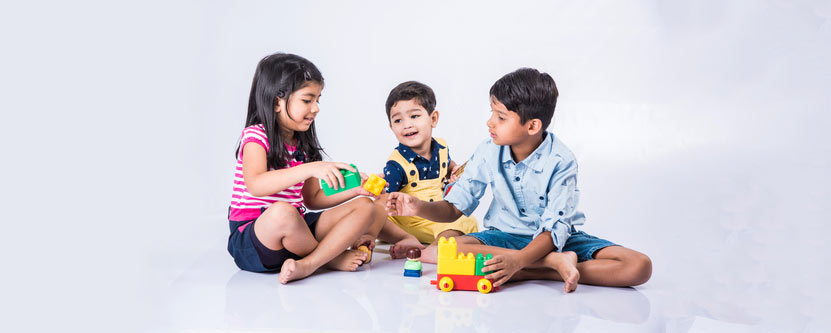Childhood is a wonderful phase in one’s life. It’s time to let loose and explore various things. With all its great moments, it is also a time
[the_ad id=”6114″]
when children are susceptible to illnesses as their immune system is still developing. Mild illnesses are a part of growing up and there is not a lot that we can do to avoid them. But a basic awareness of the common health issues faced by children can guide parents and address their concerns. Here we shall be taking a look at selected health problems in children.
RESPIRATORY CONDITIONS
Common cold or a runny nose is quite frequent in children (an average of 6-8 colds per year) and is often associated with mild fever and myalgia. The best treatment is fluids, comfort and symptomatic management. Antibiotics are not needed in every case.
However, the presence of fever, cough, cold and throat pain/sore throat suggests upper respiratory tract infection (for eg tonsillitis or pharyngitis). Appropriate treatment should be initiated for the same following consultation with a doctor. Also, severe respiratory conditions such as Pneumonia and Asthma require definitive management.
GASTROENTERITIS
It refers to bowel infection leading to diarrhea and vomiting. The main treatment is fluids specifically ORS (oral rehydration solution) and zinc supplementation. Evaluation by a doctor can determine if the child has no, some or severe dehydration and whether he/she requires hospitalization or home-based care.
WORM INFESTATION
It may present as worms in stool, non-specific abdominal pain, loss of appetite or perianal itching. Children often acquire worms as they are likely to put contaminated fingers in mouth. It can be easily treated by deworming (anti-parasitic medicines) and following hygienic practices.
URINARY TRACT INFECTIONS
Presence of fever, burning sensation while passing urine, abdominal pain and vomiting, urine incontinence, dysuria, urgency and increased frequency of urination are suggestive of urinary tract infection. It can be diagnosed with appropriate urine and blood tests and imaging. Apart from antibiotics which are used for treatment, adequate hydration, proper toilet training, complete voiding and hygiene play a very important role in preventing such episodes.
NUTRITIONAL PROBLEMS
This is an area where the majority of the parents have faced some issue or the other. In the past ‘malnutrition’ was a term used to describe primarily ‘undernutrition’ with deficiencies of various vitamins and minerals but now the other component of malnutrition i.e. ‘overweight and obesity’ is also becoming an emerging threat in the pediatric population. Many times children are brought with the complaint of fussy eating and pica (eating of non-food substances for eg mud, paint, plaster, etc).
The crux in avoiding and managing such problems is inculcating healthy food habits from the beginning. Practices such as exclusive breastfeeding till 6 months of age, timely introduction of appropriate complementary feeds and encouraging healthy home-based meals ensure a solid foundation. The diet should be balanced including servings of cereals, fruits and vegetables, dal, milk, nuts, eggs etc. Also, overeating and consumption of carbonated beverages, fatty meals and junk food should be avoided. Screen time (TV, mobile) should be limited and physical activities should be encouraged to inculcate a healthy lifestyle among children.
MAINTAINING HEALTH IN CHILDREN
As defined by the World Health Organization (WHO), health is a “state of complete physical, mental and social well-being and not merely the absence of disease or infirmity.” Keeping this in mind, there are certain measures that can help to create a healthy existence for children.
- Nutrition – as described above, a balanced diet should comprise carbohydrates, fats, proteins, vitamins and minerals.
- Adequate hydration should be maintained in children of all age groups.
- Vaccination – the child should be vaccinated as per the immunization schedule. Any missed doses require to catch up which can be discussed with pediatrician.
- Hygiene – hand hygiene is the most important measure to avoid transmission of harmful germs. Proper hygiene also ensures a decrease in worm infestation, skin and ear infections.
- Periodic health checkup – the weight, height, BMI and other growth parameters with the achievement of developmental milestones should be monitored at regular intervals and any deviation if observed should be addressed. Health care visits should also be utilized to educate as well as reinforce good health practices in children and parents.
Source:

